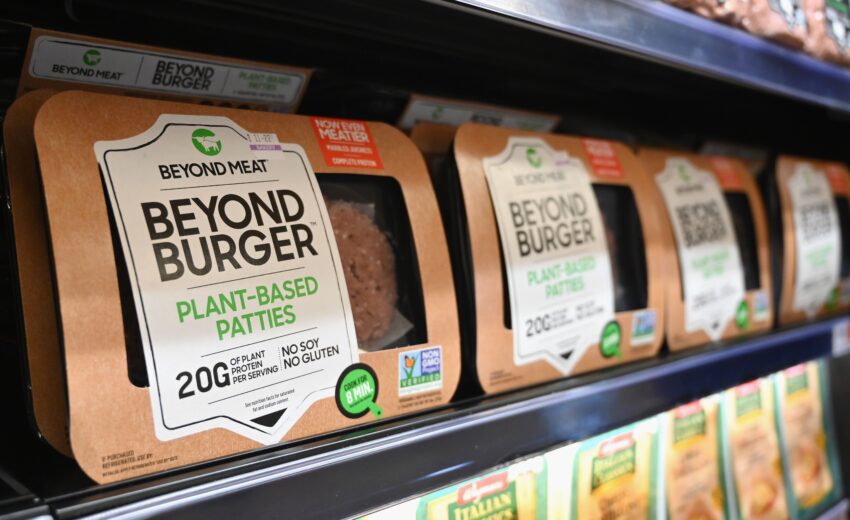
lab-grown meat does not a burger make This week, the European Parliament advanced a significant amendment that could reshape the labeling of meat products, including those derived from lab-grown sources.
lab-grown meat does not a burger make
Overview of the Amendment
The European Parliament voted in favor of an amendment that would prohibit vegetarian and vegan products from using terms such as “burger” and “sausage.” This decision also extends to cell-cultured meat, commonly referred to as lab-grown meat. The regulation was approved with a vote tally of 355 in favor and 247 against, indicating a substantial level of support among lawmakers.
Key Provisions of the Regulation
If enacted, the amendment will mandate that terms like “steak,” “burger,” “sausage,” and even “egg white” be exclusively reserved for products containing actual meat. This list is non-exhaustive, meaning that it is intended to encompass all names currently utilized for meat products. The legislation explicitly states that these terms “shall exclude cell-cultured products,” which could pose significant challenges for the emerging cultured meat industry.
Implications for the Cultured Meat Industry
The restriction on terminology raises concerns for the burgeoning lab-grown meat sector. As the industry strives to develop products that can closely mimic traditional meat, the inability to use familiar terms could hinder consumer acceptance and market penetration. For instance, the term “lab-grown flesh disk” lacks the appeal and recognition of “hamburger,” which could impact marketing strategies and consumer perceptions.
Currently, the cultured meat industry is still in its developmental stages, with companies working to refine their products. The prospect of being unable to label these innovations with familiar names could stifle growth and innovation. As the industry aims to create lab-grown steak and other meat products, the restriction could limit their ability to communicate the nature of their offerings effectively.
Background and Context
The proposed ban is part of a broader effort to support European livestock farmers, reflecting a growing trend among lawmakers who are increasingly aligned with right-wing ideologies. This political shift has led to a more protective stance regarding traditional agricultural practices, particularly in the face of rising competition from plant-based and lab-grown alternatives.
Previous Legislative Attempts
This is not the first time such restrictions have been proposed. A similar measure was voted down in 2020, indicating that the current political climate has shifted in favor of stricter regulations. The EU has established a precedent for regulating terminology in the food industry, having previously banned the use of dairy-related terms like “milk” and “cheese” for plant-based alternatives. This historical context underscores the EU’s cautious approach toward new food technologies and the protection of traditional agricultural sectors.
Stakeholder Reactions
The proposed amendment has elicited a range of responses from various stakeholders, including supermarkets, climate advocacy groups, and even fast-food chains like Burger King. Supermarkets have expressed concerns that the ban could limit consumer choices and stifle innovation in the food sector. Many retailers have invested in plant-based and lab-grown products, and restricting terminology could undermine these efforts.
Supporters of the Amendment
Proponents of the amendment argue that it is necessary to protect the integrity of traditional meat products and support local farmers. They contend that the use of meat-related terms for non-meat products can mislead consumers and dilute the value of genuine meat products. This perspective is particularly resonant in rural areas where livestock farming is a significant part of the economy.
Opposition to the Ban
Opponents of the ban argue that it could hinder innovation and limit consumer choices in an increasingly diverse food landscape. Climate groups have also voiced their concerns, emphasizing that lab-grown meat and plant-based alternatives can play a crucial role in reducing greenhouse gas emissions associated with traditional livestock farming. The ability to label these products effectively is seen as essential for encouraging consumers to make more sustainable choices.
Broader Implications for the Food Industry
The implications of this amendment extend beyond just the cultured meat sector. As the food industry evolves, the labeling and marketing of products are becoming increasingly important. Consumers are more aware of the environmental and ethical implications of their food choices, leading to a demand for transparency and clarity in labeling.
Consumer Trends and Preferences
Recent studies indicate a growing interest in plant-based and lab-grown alternatives among consumers, particularly among younger demographics. As awareness of climate change and animal welfare issues rises, many consumers are seeking out options that align with their values. The ability to effectively communicate the nature of these products is crucial for capturing this market segment.
Potential for Future Revisions
As the amendment moves forward, it will need to navigate the approval processes of the EU Commission and member state governments. There is potential for revisions and negotiations that could alter the final wording of the regulation. Stakeholders from various sectors will likely continue to advocate for their positions, emphasizing the need for a balanced approach that considers both consumer interests and the protection of traditional agriculture.
Conclusion
The recent vote by the European Parliament to restrict the use of meat-related terminology for vegetarian, vegan, and lab-grown products marks a significant development in the ongoing debate over food labeling and agricultural policy. As the cultured meat industry continues to grow, the implications of this amendment could have lasting effects on market dynamics, consumer choices, and the future of food innovation in Europe.
The outcome of this legislative process will be closely monitored by stakeholders across the food industry, as it could set a precedent for how alternative protein sources are perceived and marketed in the future. The balance between supporting traditional farming practices and embracing innovative food technologies will be a critical consideration as the EU navigates this complex landscape.
Source: Original report
Was this helpful?
Last Modified: October 10, 2025 at 6:39 pm
0 views















